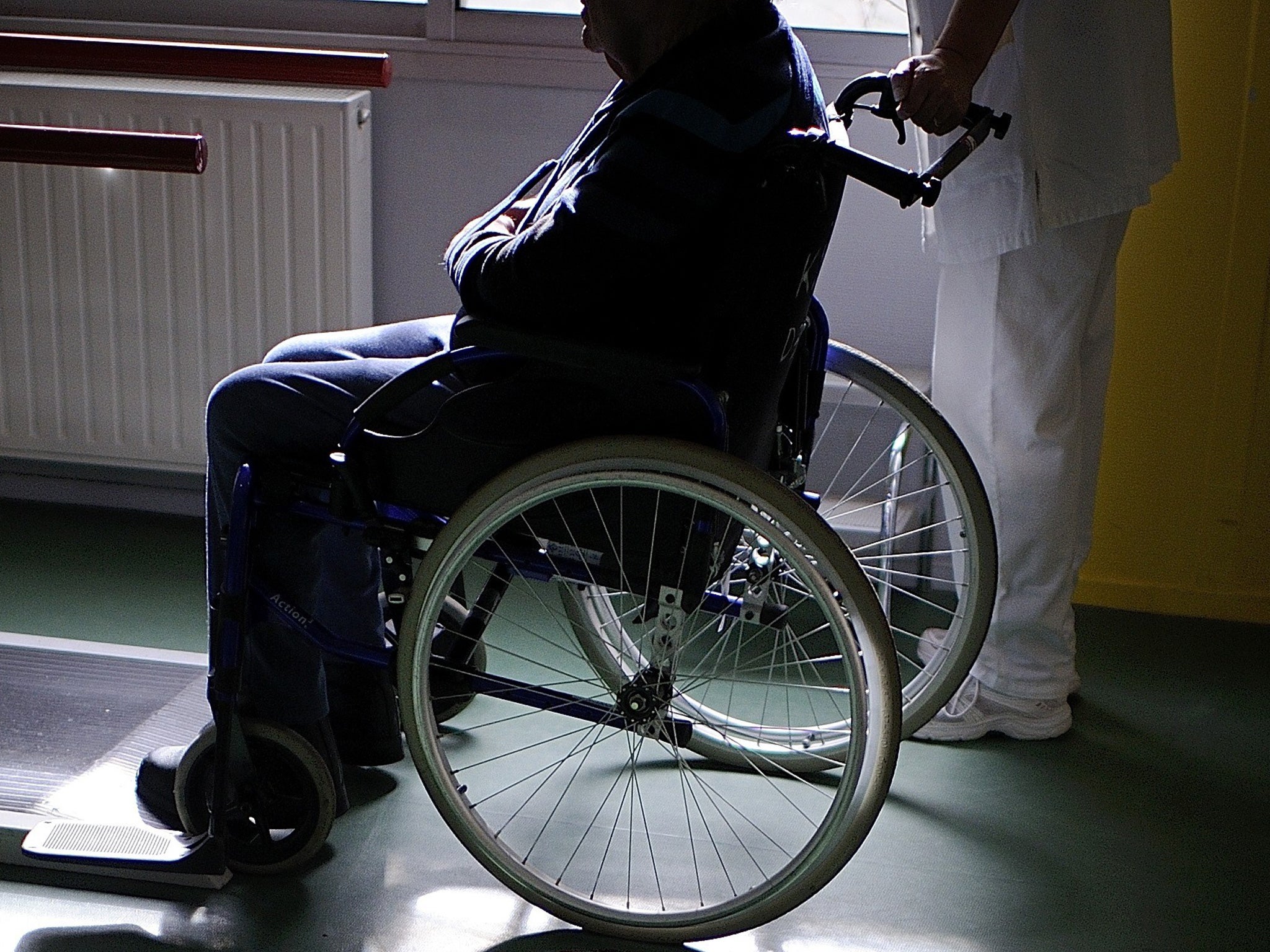Hate crime against disabled people rises 41 per cent in one year
Exclusive: Campaigners say the figures are just 'the tip of the iceberg'

Recorded hate crime against disabled people has increased a staggering 41 per cent in just one year but campaigners say the figures are just the tip of the iceberg.
According to data acquired by The Independent via Freedom of Information request, hate crimes recorded by police have risen to 2,765 incidents in 2014-15 compared to 1,955 incidents in 2013-14.
Stephen Brookes, who coordinates the Disability Hate Crime Network, said the figures uncovered by The Independent underestimated the true scale of the problem as many cases go unreported.
He said that there were 60,000 hate crimes against disabled people every year and “the majority were never reported."
“What we have been able to achieve is some form of confidence in disabled people that they will be listened to.”
He explained that in the past, the “bar was set too high” and too many people assumed that disability hate crime was just “death and injury”.
“What we’ve been doing saying there are these serious interests but what we need to do is address the hostility towards disabled people," he said.
For the 38 out of 45 police forces across the UK that responded to our request, this is a rise of 41 per cent rise compared to rise of just 5.9 per cent rise between 2012-13 and 2013-14.
The news comes on the 20th anniversary of the passing of the Disability Discrimination Act - which gave disabled people the same legal rights as everyone else.
It came after a series of direct actions inspired by the Civil Rights movement in America by protesters including demonstrations in Trafalgar Square and disabled people blocking the path of buses in their wheelchairs
Before the passing of the act a disabled person could be legally turned away from a restaurant, prevented from using public transport or even be fired when they told their employer they were ill.
But research published by disability rights charity Scope last week suggests that 62 per cent of disabled people say they are treated differently because of their disability and just 40 per cent say the UK is a good place to be a disabled person.
Agnes Fletcher, a Scope trustee who campaigned for a change to the law, said there had been a “hardening of attitudes” towards disabled people in the last five years.
She said: “[Changing the law was] not just about whether or not there is a case and whether you can prosecute it was about sending a message that this sort of behaviour is not acceptable.”
Beth Grossman, the head of policy and research at Scope, said the massive spike is due to more awareness among police and disabled people about what a hate crime actually is.
She said the Home Office had been working with police authorities over the past several years to make officers more aware about what does and does not constitute a hate crime.
She told The Independent: “If you think that the police are ordinary people who are just like you or me who may not know disabled people then they might not recognise that when people come in and report comments which could potentially be a hate crime.
“Or if a disabled person comes in and reports street harassment or physical assault, if that person themselves isn’t physically disabled or the person doesn’t directly report any disablist language the police might not record it as such. Not for any malicious reason they might just not know.”
But she still believes more needs to be done to tackle the pervasive “low-level” negativity towards disabled people.
She said: “In our research we found that 42 per cent of non disabled people don’t know a disabled person.
“You might not realise you harbour these negative perceptions because you haven’t had the day to day interactions.”
The figures show the speed at which the police’s handling of cases such as these have improved since the 2013 investigation into the death of Fiona Pilkington who killed herself and her disabled daughter after years of bullying and abuse that was ignored by Leicestershire Police.
But a report earlier this year by HM inspectorates of the Crown Prosecution Service (CPS) said police forces are still not doing enough to tackle this form of abuse which is a daily occurrence for many disabled people.
You might not realise you harbour these negative perceptions because you haven’t had the day to day interactions
Simon Green, who runs the Disability Hate Crime Network’s Welsh branch, explains that nearly every other day he will suffer at least one form of abuse or discrimination for being a wheelchair user.
He said he has been a victim of physical and verbal abuse in the past but it was the odd “snide comment” that “hurt more”.
He said: “I’ll be honest I do panic a little bit whenever I get on or off a train, am I going to have to ask people to move out of the space , are they going to be nice, are they going to be tutting and sighing so your heart does move a little faster. 9 times out of 10 it is fine but it’s that one occasion when somebody make some remark.”
Subscribe to Independent Premium to bookmark this article
Want to bookmark your favourite articles and stories to read or reference later? Start your Independent Premium subscription today.

Join our commenting forum
Join thought-provoking conversations, follow other Independent readers and see their replies